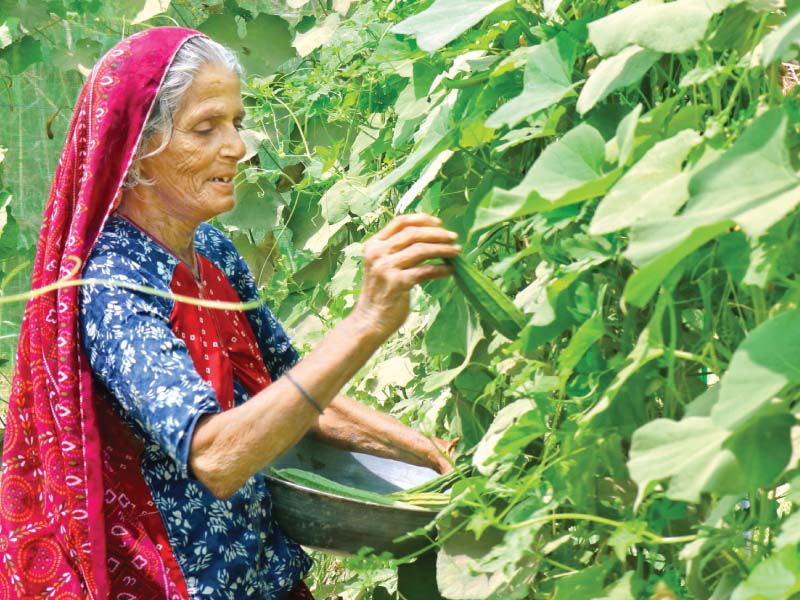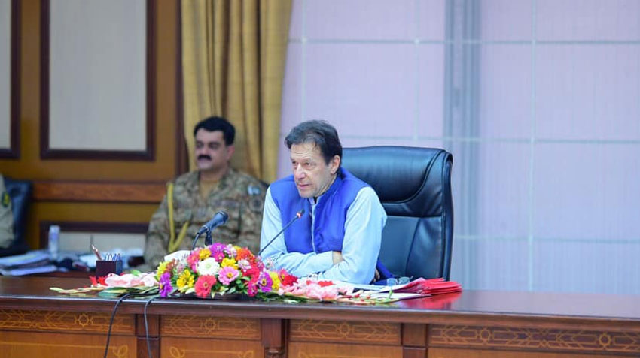
KARACHI: The Sindh Cabinet approved on Saturday the 'Sindh Women Agricultural Workers draft Bill 2019' under which female workers in agriculture, livestock, fisheries or other agro-based work would be given the rights and benefits which are given to workers in the industrial sector. With this law, Sindh would be the first province to have taken such a decision in South Asia.
The cabinet meeting was chaired by Chief Minister Murad Ali Shah at the New Sindh Secretariat and was attended by ministers, advisers and special assistants to the CM. The meeting discussed 12 items on the agenda.
Sindh Labour Minister Saeed Ghani presented the Sindh Women Agriculture Workers bill. While briefing the cabinet on the salient features of the bill, Ghani informed that over three quarters of female labourers in the country were employed in the agriculture sector. "Over half of these women are reported as unpaid family helpers," said the CM while crediting the bill to Pakistan Peoples Party (PPP) Chairperson Bilawal Bhutto Zardari who he claimed had stressed on the need for supporting female agriculture workers.
Women University seeks expansion
The bill, which would soon be moved in Sindh Assembly for legislation, proposed that female agriculture workers receive pay in cash or in kind for any kind of agriculture work, whether undertaken individually or as part of a family unit, on land and livestock belonging to her own family or someone else. The proposed bill states that the pay for the female labourers would be equal to the pay received by male labourers for the same work.
Besides, the bill specifies, the pay for the female agriculture worker shall not be less than the minimum wage fixed by the government from time to time and the work day shall not exceed eight working hours and shall not commence until one hour after day break. The worker shall also be entitled to 90 days of maternity leave.
The proposed law would give the female worker the right to access government agricultural, livestock, fisheries and other services, credit, social security, subsidies and asset transfers in her own individual right or in association with other female agricultural workers. A female worker would also be entitled to receive a written contract of employment if she so demands. The law would also give the woman the rights of collective bargaining, social welfare including child health, community development, economic profit and access to publicly supplied goods and services.
The government would register the female agriculture workers, through the labour department, at every union council level. The registered labourers would be given the Benazir Card and holders would be able to make their groups or association.
The bill added that the Sindh government would set up Benazir Women's Support Organisation (BWSO) under the labour department with an Empowerment Fund to provide technical and financial assistance to women workers. The organisation would register them, issue cards and maintain a data base for their support.
Food fortification
The food department presented the 'Sindh Food Fortification Bill 2019' in the cabinet. Pakistan is noted to be suffering from malnutrition and is rated to have the worst rate of malnutrition.
According to the National Nutrition Survey 2018, micronutrients deficiency is the major contributing factor. Half of the women and children population is far below the acceptable levels of nutrients. Iron, folic acid, iodine, zinc, vitamins A and B deficiencies are common and poor nutrition in childhood effects immunity, growth and cognitive development.
The food department briefed the cabinet that food fortification pertains to the addition of key vitamins and minerals for example iron, folic acid, zink, vitamin B-12, iodine, vitamins A and D staple foods to prevent nutritional deficiencies. Food fortification provides a nutritional benefit without requiring consumers to change eating habits or purchasing patterns. Wheat flour fortification with iron, folic acid, zink and vitamin B-12 would cost 25 paisa per kilogramme or Rs5 per 20kg bags.
The cabinet approved the mandatory legislation for the mechanism for micronutrients, registration of manufacturer and importer of these foods, warranties, quality assurance, packaging, labeling, transportation, storage and display.
The Sindh Food Authority would have sufficient powers to enforce the implementation of this law. The cabinet approved the proposed law and directed the food department to present a detailed draft bill in the next cabinet meeting.
Health dept
Meanwhile, the health department presented the case of 83 employees, including the faculty of Khairpur Medical College for regularisation.
Health Minister Dr Azra Pechuho said that out of 183 employees, 55 were professors, associate professors and lecturers. She recommended the regularisation of these employees.
The cabinet also approved the draft for Sindh Teaching Hospitals (Establishment of Management Board) Act-2019. The proposed law would apply to all teaching hospitals which would operate through a management board. The vice chancellor or principal of the medical college would be the chairperson of the board.
The board would have the power to approve the development and recurring budgets of the respective teaching hospital, prepare detailed regulations and procedures for financial management. The board would also evaluate, examine and approve annual and periodic reports of teaching hospitals. It would also have the authority to assess and review charges for admission and clinical and procedural services and facilities. According to the proposed, fund would be established under the title of 'Teaching Hospital Management Board Fund' which would be utilised by the board.
Girls demand sports grounds
Besides, the health department informed the cabinet that Dr Yasmin Kharal, the In-Charge of Shaheed Mohtarma Benazir Bhutto Institute of Trauma Centre in Karachi, has retired. She may be appointed as the executive director, they informed the cabinet which discussed her qualifications and re-employment issue and then authorised Dr Pechuho to appoint any Grade BS-20 doctor as the in-charge of the Trauma Centre. The cabinet asked her to then appoint a full time executive director for the centre through proper procedure.
Katchi Abadis Authority
The cabinet also approved a Rs477.327 million budget for the Sindh Katchi Abadis Authority for year 2018-19 and the budget of Rs464.237 million for year 2017-18. The cabinet constituted a committee, under Forest Minister Nasir Shah, Agriculture Minister Ismail Rahu, the mines and mineral minister and the Adviser to CM Barrister Murtaza Wahab, to frame the Sustainable Forest Management Policy 2019.
Published in The Express Tribune, August 25th, 2019.








































1713521455-0/Untitled-design-(9)1713521455-0-270x192.webp)
















COMMENTS
Comments are moderated and generally will be posted if they are on-topic and not abusive.
For more information, please see our Comments FAQ